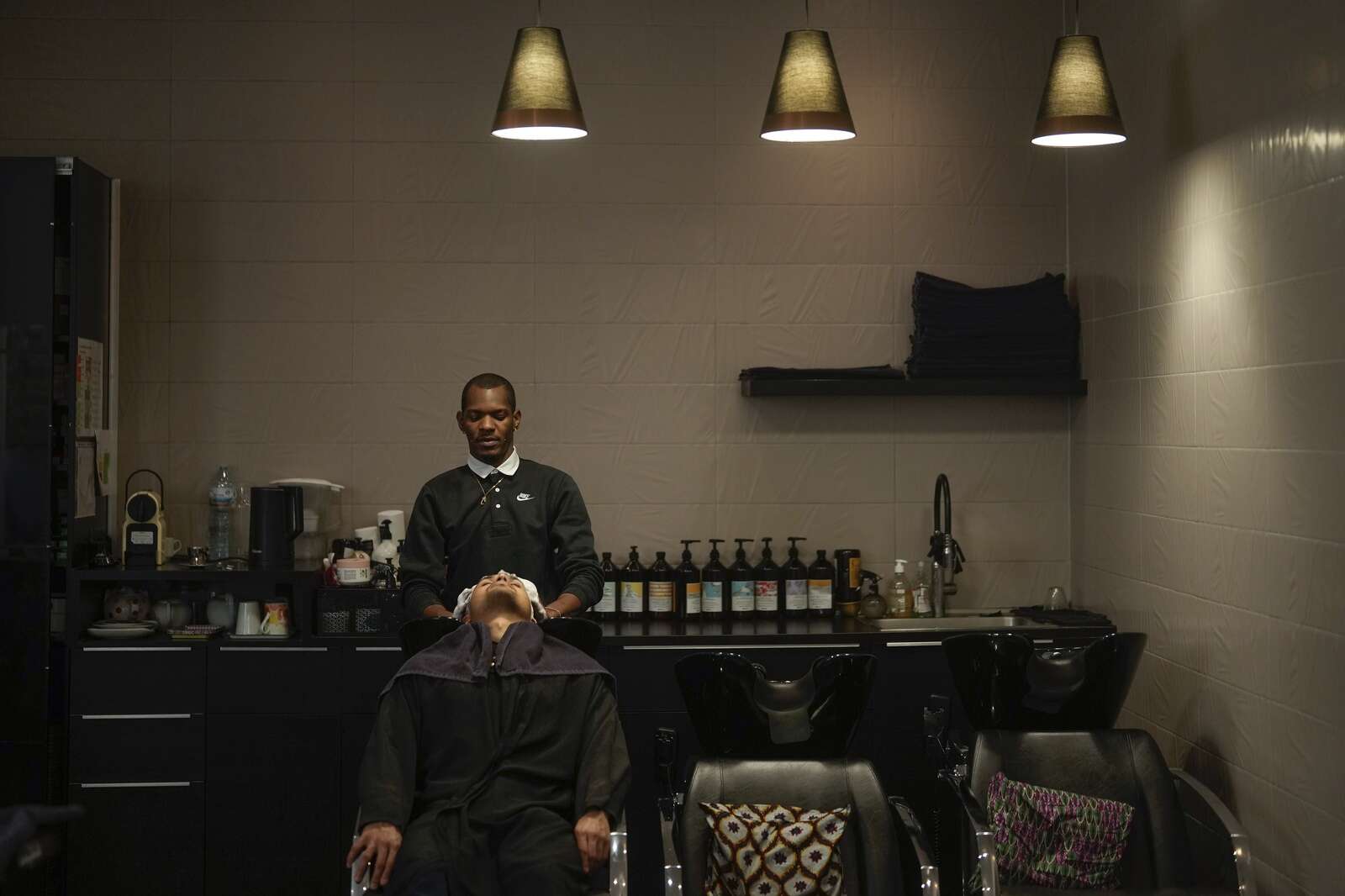
French lawmakers weigh bill banning all types of hair discrimination
French lawmakers are debating a bill Thursday that would ban discrimination over the texture, length, colour or style of someone’s hair. Its authors hope the groundbreaking measure sends a message of support to Black people and others who have faced hostility in the workplace and beyond because of their hair.
“It’s about time,” exclaimed Estelle Vallois, a 43-year-old consultant getting her short, coiled hair cut in a Paris salon, where the hairdressers are trained to handle all types of hair — a rarity in France. “Today, we’re going even further toward taking down these barriers of discrimination.”
The draft law echoes similar legislation in more than 20 U.S. states. The bill was proposed by Olivier Serva, a French lawmaker from the French Caribbean island of Guadeloupe, who says if passed it would make France the first country in the world to recognize discrimination based on hair at a national level.
The bill would amend existing anti-discrimination measures in the labor code and criminal code to explicitly outlaw discrimination against people with curly and coiled hair or other hairstyles perceived as unprofessional, as well as bald people. It does not specifically target race-based discrimination, though that was the primary motivation for the bill.
“People who don’t fit in Euro-centric standards are facing discrimination, stereotypes and bias,” Serva, who is Black, told The Associated Press.
The bill has a chance of passing in Thursday’s vote in the National Assembly, the lower house of parliament, because it is supported by members of President Emmanuel Macron’s centrist party Renaissance and left-wing parties. But it has faced opposition from conservative and far-right lawmakers who see it as an effort to import U.S. concepts about race and racial discrimination to France.
In the United States, 24 states have adopted a version of the CROWN Act — which stands for Creating a Respectful and Open World for Natural Hair — banning race-based hair discrimination in employment, housing, schools and in the military. Federal legislation passed in the House in 2022 but Senate Republicans blocked it a month later.
Opponents of the French bill say France’s legal framework already offers enough protection to people facing discrimination over their natural Afro hair, braids, cornrows or locs.
Authors of the bill disagree. One example they cite is a Black French steward who sued Air France after he was denied access to a flight because of his braids and was coerced into wearing a wig with straight hair. Aboubakar Traoré won his case in 2022 after a decade-long judiciary battle. But the court ruled that he was not discriminated against over his hair but because he is a man, since his female counterparts were allowed to wear braids.
France does not collect official data about race, because it follows a universalist vision that doesn’t differentiate citizens by ethnic groups, which makes it difficult to measure race-based hair discrimination.
Advocates of the bill hope it addresses Black French people’s long struggle to embrace their natural hair, often stigmatized as coarse and unruly.
Aude Livoreil-Djampou, a hairdresser and mother of three mixed-race children, said that while some people view the draft law as frivolous, it’s about something deeper.
“It’s not only a hair issue. It will give strength to people to be able to answer, when asked to straighten their hair, they can say: ’No, this is not legal, you cannot expect that from me, it has nothing to do with my professional competence.’”
Djampou-Livoreil’s salon takes care of all kinds of clients, from those with straight hair to those with tight curls. “It’s very moving to have a 40-year-old woman, sometimes in a very high position, finally embracing her natural beauty. And it happens every day,” she said.
Salon customer Vallois hopes her 5-year-old daughter will live in the future in a society that doesn’t stigmatize their hair.
“When I was younger, I remember lamenting the lack of salons and even hair products (for frizzy hair) — there was a time when, unfortunately, we had to use products designed for European hair and not adapted to our hair. I’m glad, today, that things are more accessible and there’s change,” she said.
“There’s no reason to be ashamed of who you are, whether it’s your hair or even the fact that you don’t have any!”
News Related-
AWS and Clarity AI to use generative AI to boost sustainable investments
-
Ref Watch: 'Enough' of a foul to disallow Man City goal vs Liverpool
-
Day in the Life: Ex-England rugby star on organising this year's Emirates Dubai Sevens
-
Pandya returns to MI, Green goes to RCB
-
Snowstorm kills eight in Ukraine and Moldova, hundreds of towns lose power
-
‘This is why fewer Sikhs visiting gurdwaras abroad’: BJP after Indian envoy heckled in Long Island
-
Inside a Dubai home with upcycled furniture and zero waste
-
Captain Turner aims for Pitch 1 return as JESS bid to retain Dubai Sevens U19 crown
-
No Antoine Dupont but Dubai still set to launch new era for sevens
-
Why ESG investors are concerned about AI
-
Your campsite can harm the environment
-
Mubadala, Saudi Fund deals on US radar for potential China angle
-
Abu Dhabi T10 season seven to kick off with thrilling double-header
-
Eight climate fiction, or cli-fi, books to consider before Cop28
